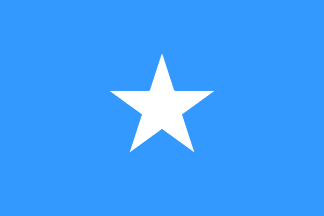Doctor helps establish Somalia baby hospital
Here's a nice story about Doctor's Without Borders doing good work in Jowhar. Hopefully this is a start of more good things to come in Somali. "There are three to four births now at the hospital," the message said. Nishino reacted with a smile, saying, "There was definitely a need for the hospital." Nishino, a pediatrician in Bunkyo Ward, Tokyo, was in Somalia from December to March as a member of Doctors Without Borders (Medecins Sans Frontieres). She took an active part in the establishment of the maternity hospital there. Somalian women typically give birth at home in the absence of public medical facilities. One in 10 dies during pregnancy or at the time of delivery, and one in 10 newborns dies within a week after birth, according to the group. Because of this situation, the group began building a maternity hospital last August in Jowhar, about 90 km north of Mogadishu. The medical center was designed to admit expectant mothers and has surgical facilities. After some setbacks, the group resumed efforts to build the hospital and interviewed prospective nurses. Equipped with 20 beds, delivery and operating rooms and capable of performing emergency surgery 24 hours a day, the center opened in mid-February. The first patient was a woman suffering a serious case of gestational toxicosis and high blood pressure. Doctors thought an immediate Caesarean delivery was necessary, but they had to get the consent of her husband in a country where the majority of people are Islamic and women's rights get little protection. The husband said, "The operation isn't necessary. If (she) died, that would be Allah's will." Nishino and other members of the group managed to persuade him to give in. The operation was performed and the mother and baby were discharged safely. Source: Japan Times
====================================
Ruriko Nishino received an e-mail recently from Somalia, which has been in a state of chaos for more than 15 years, telling her the maternity hospital she helped set up there is having an impact.
Pediatrician Ruriko Nishino is flanked by fellow members of the medical-aid group Doctors Without Borders at a maternity hospital.




